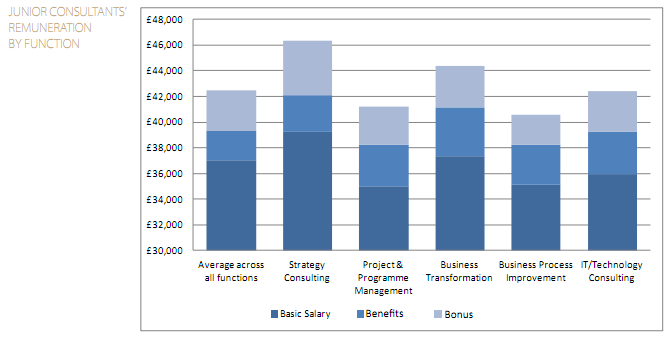The final post in our McKinsey Week series: the McKinsey Case Interview. In this special week, we’ve focused on the most well-known strategic consultant we all love (and hate): McKinsey & Company. We’ve explored the long history of McKinsey, both the company’s roots and more recent developments. This weekend, we featured a post on the McKinsey PST: the first ‘hurdle’ every aspiring McKinsey consultant or intern will face.
Today we will focus on the steps that come after the resume selection and the Problem Solving Test. For if you were lucky, smart or prepared enough to make it to the interviews, you’d better get ready for the case interview. The case interview is the selection method of choice in the strategic consulting industry and has recently found its way to the other (more general) management consulting firms as well.
In this article you can find information on the specific way McKinsey handles the case interview, but the basics are similar across firms. You will face a (senior) consultant or engagement leader in the first rounds and a principals and partners in the final rounds in a one-on-one conversation. They might start with some general questions on your background and resume, but quickly move on to the case. The business cases you’ll be asked to solve will be as varied as consulting life itself, as they are often taken from the personal experience of the interviewer. Click if you would like to learn how to confidently solve a case interview.
McKinsey case interviews require the same approach as any case interview, but they differ on some specific parts. The first difference is not even in the way the case is handled, but during what is often called the ‘experience interview’ or ‘airport test’ part of the interview: the first minutes in which the interviewer will ask questions about your background. McKinsey is a leading company looking for future leaders. A question you’re sure to be asked, especially during the first rounds, is:
Tell me about a time you exhibited real leadership”
Be prepared for these kind of questions! It’s something I also elaborate on in my book: consulting firms such as McKinsey are not just looking for the smartest people, they want the smartest guys and gals with people skills. You can expect this question during interviews at any other firm as well, but McKinsey focuses more on leadership than other firms, so be prepared.
Another difference is that the McKinsey case interview is more often interviewer-led than other firms. What does this mean? An interviewer-led case interview will be structured by the interviewer, who will ask you to solve a specific part of the case (on a qualitative or quantitative way) and after you present a solution, he or she will walk you to the next specific issue. For example:
What would influence the demand of replacement car tires in the USA?”
[you think of the four to six most important factors and answer the question]
Very well, given those factors, what would be the yearly market for replacement car tires in the state of New York?
[you structure the question using the factors you mentioned and calculate the market size]
Ok, so the CEO of a national car maintenance chain has asked you to investigate whether it’ll be a good idea to acquire a local car tire manufacturer, what would be the advantages and disadvantages, you think?”
And so on, and so on. The interviewee-led case interview will put your problem structuring skills more to the test, as you’ll have to structure the whole case on your own, making sure your structure is completely MECE. You will be the one forming hypotheses and then gathering data to prove or disprove them, with help of assumptions or information from the interviewer. These structures should follow the Minto Pyramid Principle, if possible. We will delve deeper into how to solve case interview questions in my book.
Don’t forget that regional differences also influence the kind of questions you will get, since cases are often based on real consultant work. So you can expect more financial cases when applying to the New York office, more oil/energy when applying to the Houston office and more tech/IT oriented questions when applying to the Chennai (India) office of McKinsey.
Standing out above the rest of the candidates is all about preparation. All applicants are smart. All applicants come from top schools. All applicants have good grades. But not all candidates are as prepared as you can be. So know everything there is to know, read up on news in the sectors you can expect questions from. And above all: practice cases with a friend, read all the info available on the web and this website, read my book.
If you have comments, questions or stories to share: comment below and I’ll share my thoughts or improve this article. Trouble practicing for the McKinsey PST? Also applying to other firms? Check out our Company Profiles page! If not, good luck with your McKinsey Case Interviews!









